DESIRE AND CHOICES
What rights do I have to ‘my time’ if I am practicing taking up my cross? This question reflects a struggle that I’ve heard often in my psychotherapy office from people who value their Christian spirituality. They frequently add, I don’t want to be selfish. By this they mean they do not want to focus on themselves or on their desires. It’s a difficult spot because often the problem is the opposite of selfishness. They are not too focused on themselves, but rather they know themselves too little and would do well to consider more carefully what they want. Here’s another famous C.S. Lewis quote that identifies the deeper problem from The Weight of Glory,
If you asked twenty good [people] today what they thought the highest of the virtues, nineteen of them would reply, Unselfishness. But if you had asked almost any of the great Christians of old, they would have replied, Love. You see what has happened? A negative term has been substituted for a positive, and this is of more than philological importance. The negative idea of Unselfishness carries with it the suggestion not primarily of securing good things for others, but of going without them ourselves, as if our abstinence and not their happiness was the important point. I do not think this is the Christian virtue of Love. The New Testament has lots to say about self-denial, but not about self- denial as an end in itself. We are told to deny ourselves and to take up our crosses in order that we may follow Christ; and nearly every description of what we shall ultimately find if we do so contains an appeal to desire. If there lurks in most modern minds the notion that to desire our own good and earnestly to hope for the enjoyment of it is a bad thing, I submit that this notion has crept in from Kant and the Stoics and is no part of the Christian faith. Indeed, if we consider the unblushing promises of reward and the staggering nature of the rewards promised in the Gospels, it would seem that Our Lord finds our desires not too strong, but too weak. We are half-hearted creatures, fooling about with drink and sex and ambition when infinite joy is offered us, like an ignorant child who wants to go on making mud pies in a slum because he cannot imagine what is meant by the offer of a holiday at the sea. We are far too easily pleased.
Identifying our desires and our hopes for how we spend our time is part of the faithful practice of Christianity. Rather than repressing them, we need to uncover them and consider them in the light of Love Himself. More on this to come.












